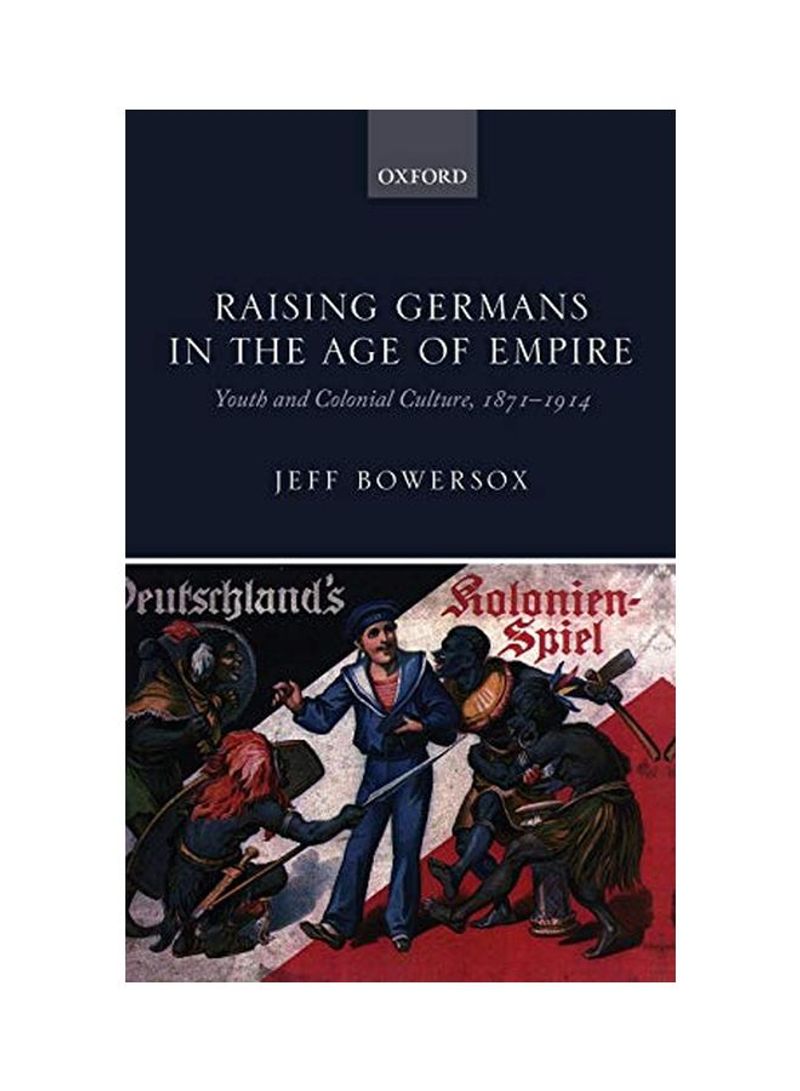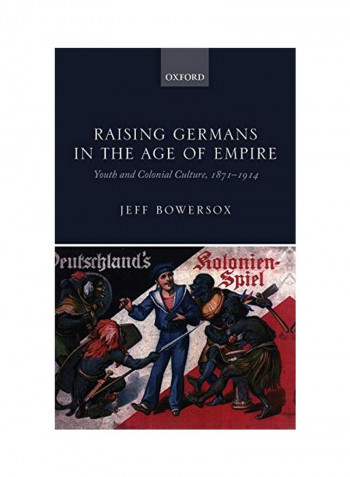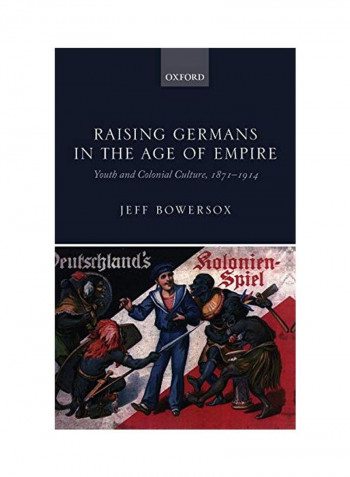Raising Germans In The Age Of Empire: Youth And Colonial Culture, 1871-1914 Hardcover
Recommend
Sort by
Rating
Date
Specifications
Author 1
Jeff Bowersox
Book Description
Raising Germans in the Age of Empire is a cultural history of the German colonial imagination around the turn of the twentieth century. Looking beyond the colonialist movement, it focuses on young Germans who grew up during this era and the various commercial and educational media through which they daily encountered the wider world. Using their imaginary colonial encounters, Jeff Bowersox explores how Germans young and old came to terms with a globalizing world. Chapters on toys, school instruction, popular literature, and the Boy Scouts (or Pfadfinder) reveal how Germans, through mass consumer culture and mass education, built a definitive association between colonial hierarchies and Germany's place in the modern age. By 1914 this colonial sensibility had been accepted as common sense, but it always remained flexible and vague. It could be adapted to serve competing and contradictory purposes, ranging from profit and pedagogical reform to nationalist mobilization and international socialist solidarity. Thus, as young Germans used images of imperialism to construct their own fantastical adventures, adults tried to use those same images to ward off the worst excesses of industrial modernity and to mold young people into capable and productive citizens. The result was a chaotic multitude of imagined empires vying for space in the public arena as Germans debated how best to raise the next generation of children. Raising Germans in the Age of Empire explains how colonial visions not only shaped Germans' engagement with globalization but also determined how they understood themselves as a modern nation.
ISBN-13
9780199641093
Language
English
Publisher
Oxford University Press
Publication Date
12 Jul 2013
Number of Pages
256
About the Author
Jeff Bowersox's teaching and research interests include modern German, European, and world histories; the histories of race, imperialism, and the African diaspora; and the histories of youth, education, and popular culture.
Editorial Review
The book contains a great deal of new information and the narrative is rich with intriguing illustrations. * Mark Jones, History * Bowersox does a very effective job in showing certain tectonic elements underlying virtually every colonial book, article, lecture or board game...Raising Germans is a quite valuable examination of the normalization of a colonial vision of the extra-European world and the experiential world of German children in the Kaiserreich. * David Hamlin, European History Quarterly. * Jeff Bowersox has had to be at least as resourceful as any child at imaginative play, combining sources from board games, youth missionary magazines and dime novels to court cases, geography lessons and Colonial Society archives ... He assembles his archive, combs it carefully and combines his evidence persuasively ... this compelling study invites us to consider the possibilities of continuity and change across thresholds of adulthood and catastrophe in the early twentieth century. * John Phillip Short, Social History * Raising Germans is an important contribution to the literature on the relationship between the colonial world and European society and offers a new perspective on the interplay between mass culture, modern pedagogy, and national and colonial interests. By viewing youth both as recipients of a new modern pedagogy and as agents in their own lives and education, Raising Germans contributes to discussions about youth agency. Raising Germans will be important to those interested in German colonial history, comparative colonial youth, and youth and gender. * Michelle Mouton, The Journal of the History of Childhood and Youth * This book provides a great deal of material... and provides stimulating suggestions for interpreting the colonial culture of Imperial Germany. * Winfried Speitkamp, Recensio.net * a thoroughly researched and well-structured study * John David Smith, Canadian Journal of History * employs an impressive array of textual, visual and material sources. * Jan Broeker, European Review of History * The discussion of the production and texts of a new genre of colonial literature for the young provides a fresh perspective and a persuasive thesis. * Marjorie Lamberti, German History * Bowersox has produced an excellent study of the colonial aspects of youth history. His book shows the surprising ways in which, already around 1900, German children's rooms and schools were globalised, indeed under the sign of colonialism. * Dr. Joachim Zeller, freiburg-postkolonial.de



